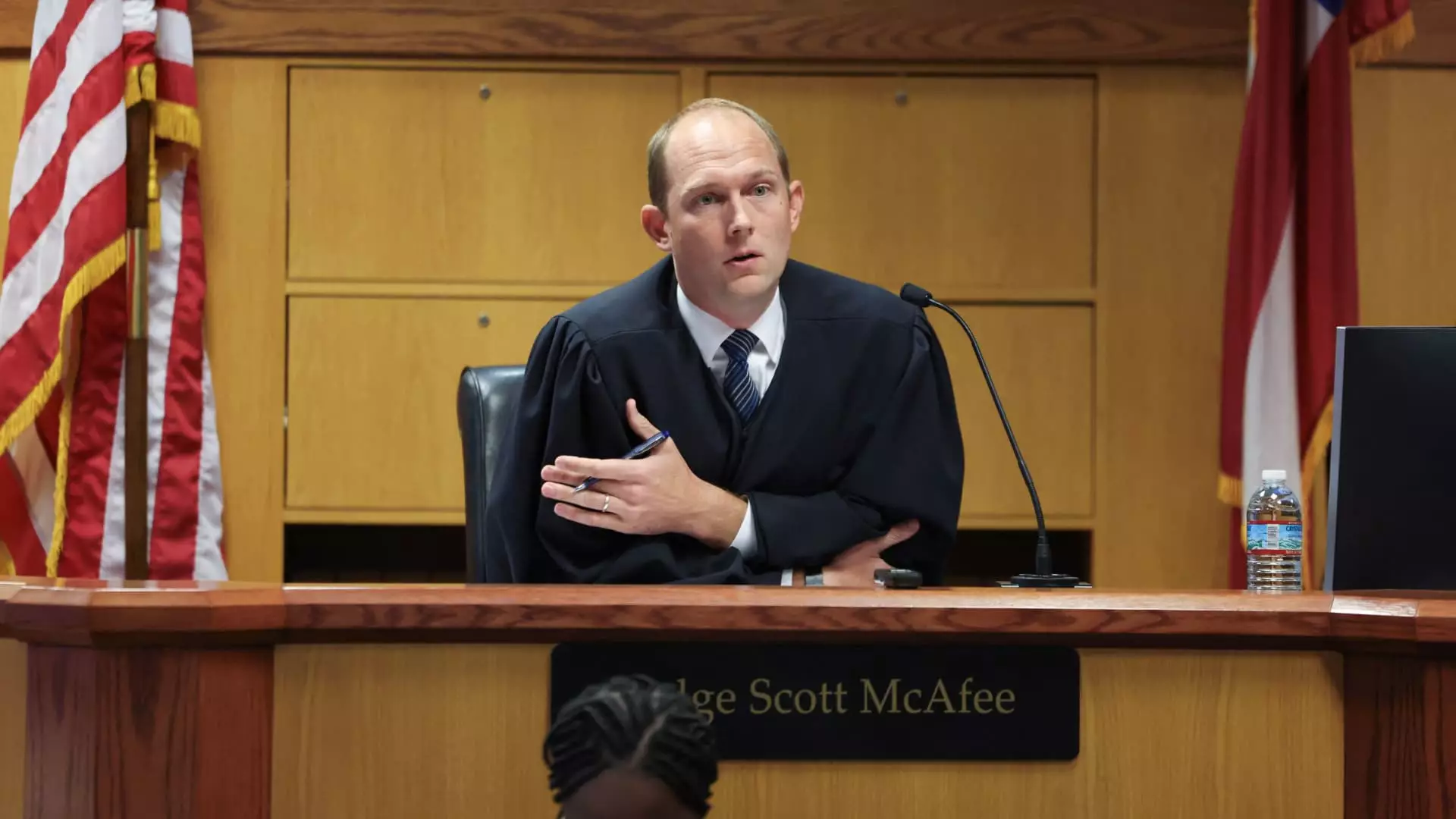In a significant decision, Judge Scott McAfee of Fulton County Superior Court in Atlanta has ordered that the identities of jurors in the Georgia election interference case involving former President Donald Trump will remain undisclosed until the completion of the trial. The aim behind this ruling is to ensure the safety and privacy of the jurors, who will be referred to only by numbers in court filings or during proceedings. Under this ruling, parties involved in the case are strictly forbidden from disclosing any personal information or employment details related to the jurors. The judge has gone a step further by prohibiting the use of any visuals, including drawings, which could potentially reveal their identities. However, audio recording will be permitted when the jury’s foreperson reads the verdict.
Judge McAfee’s ruling comes in the wake of violent threats made against officials in Fulton County, prompting an FBI investigation. Earlier this year, Trump supporters took to posting online the names and addresses of members of the grand jury that indicted the former president. These alarming incidents create a hostile environment that could potentially influence the jurors’ decision-making, jeopardizing the integrity of the trial. With the prevalence of online harassment and the alarming rise in politically motivated attacks, it is crucial to take proactive measures to safeguard the jurors’ well-being.
Anonymity of jurors plays a vital role in maintaining fairness and impartiality in high-profile cases. By shielding their identities, the risk of external pressures, such as coercion, intimidation, or undue influence, is minimized. Jurors can focus solely on the evidence and arguments presented in court, without the fear of personal repercussions or intimidation tactics. It is essential that jurors are able to render their verdict based solely on the facts and the law, rather than being swayed by external factors or popular opinion.
The case against Donald Trump and his co-defendants in the Georgia racketeering case is of utmost significance for the integrity of the democratic process. It alleges that they conspired to overturn President Joe Biden’s victory in the state’s 2020 election. The repercussions of this case extend beyond the individuals involved and directly impact the public’s faith in the electoral system. By ensuring juror anonymity, the court sends a strong message that it will not tolerate any interference or intimidation that undermines the rule of law and the democratic principles on which our society is built.
Judge Scott McAfee’s ruling to protect the identities of the jurors in the Georgia election interference case demonstrates an unwavering commitment to upholding justice and safeguarding the democratic process. The decision acknowledges the potential risks faced by jurors in politically charged cases, especially when their personal information is readily available online. By prioritizing their safety, privacy, and ability to render an impartial verdict, Judge McAfee’s ruling sets an important precedent for future cases involving high-profile defendants.
The decision to keep the jurors’ identities secret in the Georgia election interference case is a necessary measure to protect their safety, maintain the fairness of the trial, and uphold the democratic principles upon which our society is founded. By implementing juror anonymity, the court ensures that the focus remains on the evidence and the law, rather than external pressures or intimidation tactics. It is the duty of the judiciary to safeguard the integrity of the legal process and protect those who are entrusted with upholding justice.

Leave a Reply